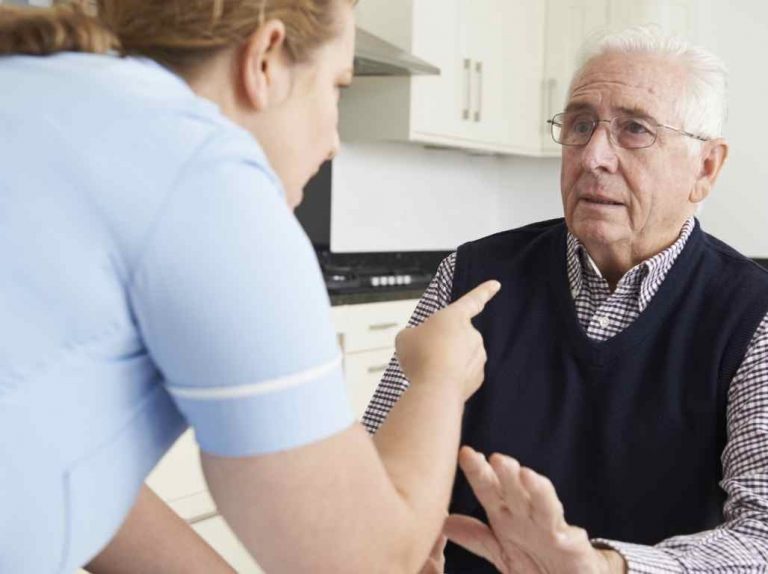Senior home care abuse is something everyone worries about when older loved ones need care at home. Home care services help senior citizens and the elderly population with personal care, feeding and nutrition, transport, and medication. That’s great support for people who want their loved ones to stay at home where they are comfortable and family members can visit them. However, seniors as especially vulnerable to home care abuse because of their weak physical condition because of aging. There are many ways to insure that your loved ones are safe. So here are some crucial guidelines to follow when you’re seeking home health care.
Protection From Home Care Abuse
It’s crucial to know the best practices to protect your senior when under home care. Here are some of the ways:
1. Choose A Reputable Home Care Provider
One of the best ways to prevent home care abuse is to choose a trustworthy home care provider. A reputable service provider employs caregivers who are experienced in managing geriatric clients or older people at home care settings.
You’d know you’re dealing with a reputable home care provider by checking the following:
- Credentials of the home care agency (including employee certifications and background checks)
- Social proof (check testimonials in service review sites, people you know, or social media)
- Availability of a wide range and excellent services
2. Create A Plan
Before getting a home care provider, make sure to include your senior loved one in the planning stage. In this way, the patient will be more cooperative and responsive to the caregiver in performing routine tasks.
Ask your senior family member for suggestions regarding the type of services. You should also be prepared to devise a communication strategy to warn if abuse arises such as a password or a secret message like a specific quote or a joke implying an abuse is taking place. An extra phone and charger hidden in a secret place can also help your senior ask help if the primary phone is confiscated.
3. Know The Warning Signs Of Home Care Abuse
The signs of home care abuse can be subtle. Your elderly loved one may show a sudden change of behavior, which is often thought to be a part of an existing mental health crisis, medical condition, or aging.
The warning signs of home care abuse may include the following:
- Bedsores or pressure ulcers
- Malnutrition
- Unexplained sprains or fractures
- Bed injuries
- Signs of restraints (like bruises or rope marks in the wrists and feet)
- Dehydration
- Withdrawn and agitated
- Appears frightened when the caregiver is around
4. Install Surveillance Cameras
You can install closed-circuit television (CCTV) or home security surveillance cameras in different parts of the house. In this way, you can monitor your senior loved one with the home care worker remotely.
You can tell the home care worker that your place is equipped with CCTV or have small signage to show your property is equipped with CCTV. By doing so, people will think twice about doing something wrong if they know they’re under constant monitoring.
Hiring a home security service company can help you install hidden cameras if you don’t want the caregiver to know you have one. You can have obvious and hidden CCTV cameras for comparison and safety purposes.
5. Interview The Caregiver
Before you agree to anything, make sure you get to know the caregiver who’ll take care of your elderly family member. You shouldn’t miss the interview portion. Ask open-ended questions such as the following:
- What are the struggles with taking care of seniors?
- How do you handle an uncooperative patient?
- What are the things you like about seniors?
In addition, it’s essential to also provide some form of a checklist or guide on the special needs of your loved one, which is one way to help the caregiver perform tasks with the patient’s participation.
You also need to encourage the home care worker to speak to you about any concerns or problems that may arise. Healthcare workers also have personal problems that can affect their work performance. Therefore, show you’re willing to listen and cooperate for the best care of your senior.
6. Ask For Legal Advice
It’s important to talk to a home care abuse lawyer if you suspect your parent, grandparent, or any senior family member is a victim of abuse. There are many types of elder abuse, and prompt action is necessary to ensure you seek justice early and prevent the same incident to happen to other people.
7. Report Abuse Early
Your lawyer can help you report an incident of elderly abuse. It’s also important for your loved one to have access to emergency phone numbers to seek immediate help as needed.
Final words about protecting your loved ones from home care abuse.
You can protect your senior family member from home care abuse by dealing with a reputable agency. Equip yourself with the right information about the warning signs of abuse and smart ways to monitor your loved one. You need to make sure you have open communication with your senior and the caregiver to resolve issues and promote a better patient and caregiver relationship.





















